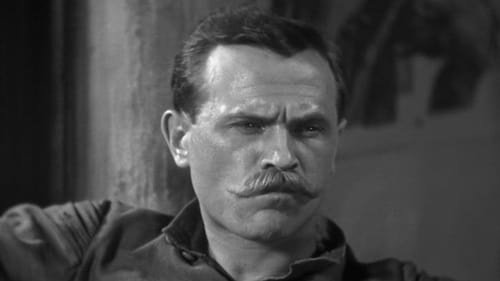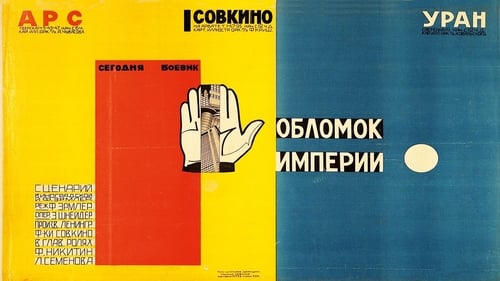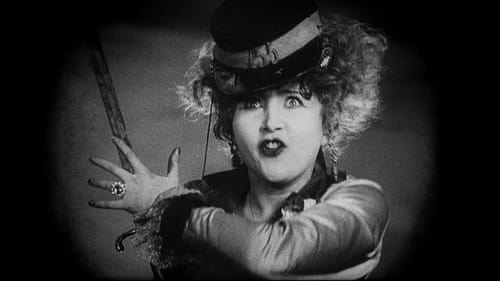
Tall veterinary sergeon
Relata la historia de Vasily Ivanovich Chapaev (1887-1919), un comandante legendario del Ejercito Rojo que se volvió héroe de la Guerra Civil Rusa. La trama esta basada en la novela del mismo nombre escrita por Dmitri Furmanov, un escritor ruso y Comisario Bolchevique que es enviado desde Moscú para luchar junto a Chapaev para enfrentar al ejercito blanco de Kolchak. Chapaev recibe a Furmanov fríamente, pero poco a poco va surgiendo el entendimiento entre ambos.

French officer
During World War 1 a Russian soldier (Pyotr Sobolevsky) serves in Russian Expeditionary Force in France where he is chosen for his marksmanship and trained as a skilled sniper. After the Russian revolution the soldier returns home while his commander (Boris Shlikhting) fights against the Soviet Russia. In 1930 the former soldier works on a factory and also he is the instructor in shooting club. Once the town that is near the Soviet border is attacked by foreign troops (the hostile state isn't named but the uniform of the soldiers resembles Finnish). The character meets againt with his former commander who serves in invading forces.

Cain
Pavel Petrov-Bytov was an enfant terrible of the highbrow Leningrad Sovkino film factory. He was notorious for his article “We Have No Soviet Filmmaking,” in which he criticized all the achievements of the Soviet avant-garde. In spite of his beliefs and his scandalous struggle with “bourgeois” and “formalist” filmmaking, Petrov-Bytov directed an aesthetically refined work, shot entirely on set with masterful chiaroscuro lighting: a perfect example of “Soviet expressionism.” Based on a Maxim Gorky story, the plot of Cain and Artem provides a wake-up call to the Russian people to overcome alcoholism and religious factionalism, as it spotlights the (many) drunken denizens of a typical village and their disregard for the Jewish shoemaker Cain.

Passenger in the train
La película trata sobre los cambios enormes que han pasado en la URSS después de la victoria de la Revolución de Octubre. Hacia el fin de la guerra civil, el ex suboficial y caballero de San Jorge Filimonov se encuentra contuso en estado de shock. Pierde por completo la memoria. Desde hace un tiempo, Filimonov ayuda al guardián de la pequeña estación ferroviaria. En una ventanilla del tren que pasa, Filimonov ve a su mujer. Esto le despierta su memoria. Sin embargo, Filimonov se acuerda sólo de lo que ha pasado con él hasta la contusión. Decide ir a Petersburgo para encontrar a su mujer y a su patrón del trabajo. Durante un tiempo, no puede comprender los cambios que han pasado en el país en los últimos años. Los obreros ayudan a Filimonov a entender que ahora, bajo el poder Soviético, él junto con ellos es el amo de la fábrica y de su propia vida.

Bourgeois
In the short-lived Commune of Paris, a conscripted soldier falls in love with a Communard saleswoman. As the army cracks down on the revolutionaries, the soldier is forced to fight against the Commune, and the pair's love is put to the test.

Gambler
The film tells about the Decembrists’ revolt in the south of Russia. Right before the Decembrist Revolt 1825 a chevalier of fortune decides that it's time for a game. But on whom to make a bet? He asks the cards. But he's not the only one who makes the choice.

Vaudeville Performer
Typically of the heady days of early Soviet cinema, this is constructed according to the fast, sharp editing principles advocated by Eisenstein, complete with symbolic inserts; but in terms of subject matter, it's much less explicitly political than most movies emerging from Russia in the '20s. Chronicling a young sailor's descent into a murky, treacherous underworld of pimps and thieves, after having encountered a Louise Brooks lookalike at a fairground and missed his departing boat, it's a lively moral fable that delights in vivid visual effects and quirky characterisations. If the plot occasionally reveals gaping holes, and the tacked-on ending urging the clearance of the Leningrad slums seems to be rather gratuitous, there's enough going on to keep one attentive and amused.






